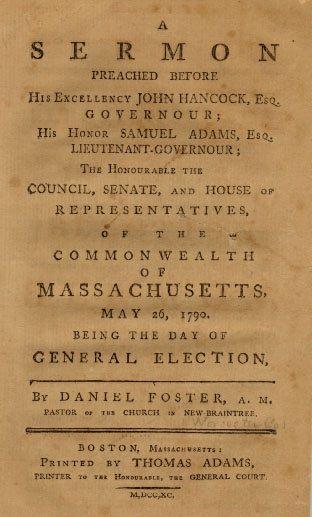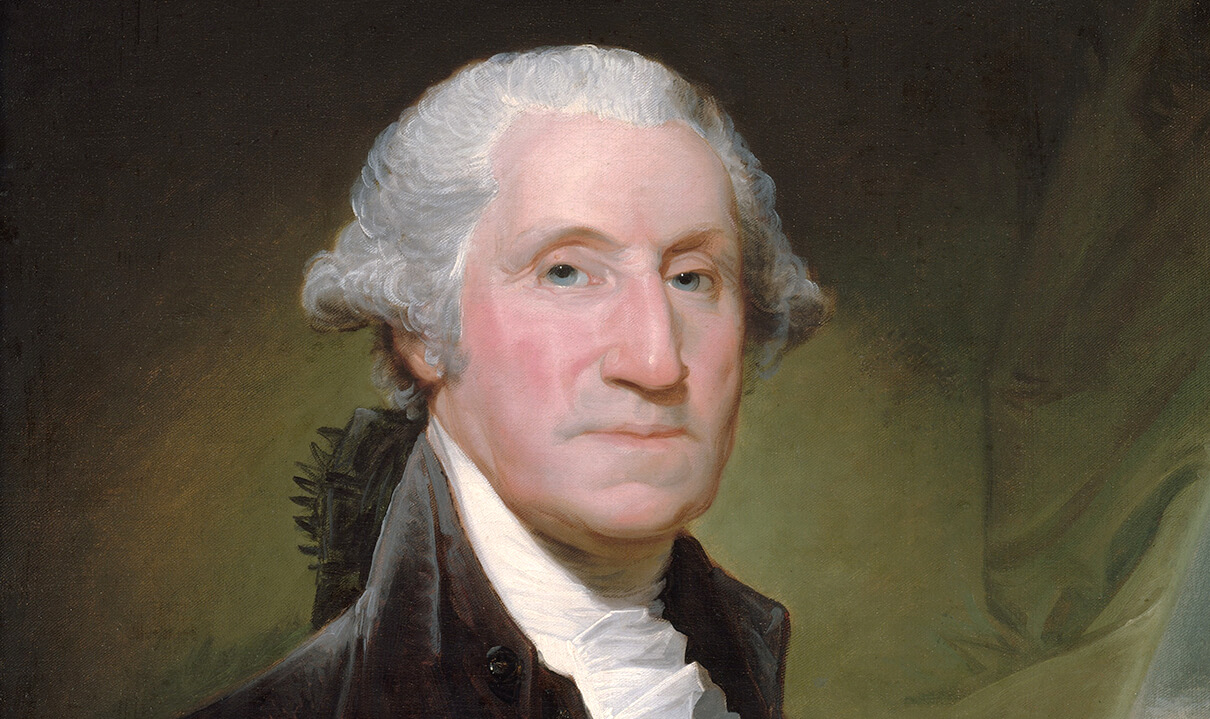At the time of the Founders, it was a common practice for ministers to preach “Election Sermons,” and it was very common for a clergyman to be invited to give a sermon before the newly-elected government officials. This 1790 election sermon by Rev. Daniel Foster was given before the Massachusetts Governor (John Hancock), Lieutenant-Governor (Samuel Adams), and both houses of Legislature. Rev. Foster admonished these elected officials using Proverbs 8:16 (By Me princes rule, and nobles, even all the judges of the earth), and encouraged them to govern according to God’s ways. (For the full text of Foster’s Election Sermon click here.)

This is the text on the cover of the Election Sermon:
A
S E R M O N
PREACHED BEFORE
His Excellency JOHN HANCOCK, Esq.
GOVERNOUR;
His Honor SAMUEL ADAMS, Esq.
LIEUTENANT-GOVERNOUR;
The Honourable The
COUNCIL, SENATE, and HOUSE of
REPRESENTATIVES,
Of The
C O M M O N W E A L T H
of
M A S S A C H U S E T T S
MAY 26, 1790.
BEING THE DAY OF
GENERAL ELECTION
By DANIEL FOSTER, A.M.
PASTOR of the CHURCH in NEW BRAINTREE
BOSTON, Massachusetts:
PRINTED BY THOMAS ADAMS,
PRINTER to the HONOURABLE, the GENERAL COURT
M,DCC,XC
John Hancock (1737-93) was a soldier, public official and Harvard graduate(1754). He served several terms as a Selectman of Boston; member of the Provincial Legislature (1766-72); member of the Continental Congress (1774-78) where he was the first signer of the Declaration of Independence (1776) and President of Congress (1774-77); He was a Senior Major-General of the Massachusetts Militia (1778); a delegate to the State constitutional convention (1779); and Governor of Massachusetts (1780-85, 1787-93).
Samuel Adams (1722-1803) was a leader in the opposition to the acts by British Parliament which precipitated the American Revolution (1765-76); formed Boston’s Committee of Correspondence (1772); was a member of the Continental Congress (1774-81) where he signed the Declaration of Independence (1776); and helped draft the Articles of Confederation (1777); He served as president of the Massachusetts senate (1781); Lieutenant-Governor of Massachusetts (1789-94); and Governor of Massachusetts (1794-97). He is called both the “Firebrand of the Revolution” and “The Father of the American Revolution” for his important leadership in the cause of American independence.
Still looking for answers? Visit our FAQ page
More Resources
Know the Truth and Protect Your Freedoms.
Still looking for answers? Visit our FAQ page
Stay Informed with the Latest Resources
Enter your email address to receive our regular newsletter, with important information and updates right in your inbox!








